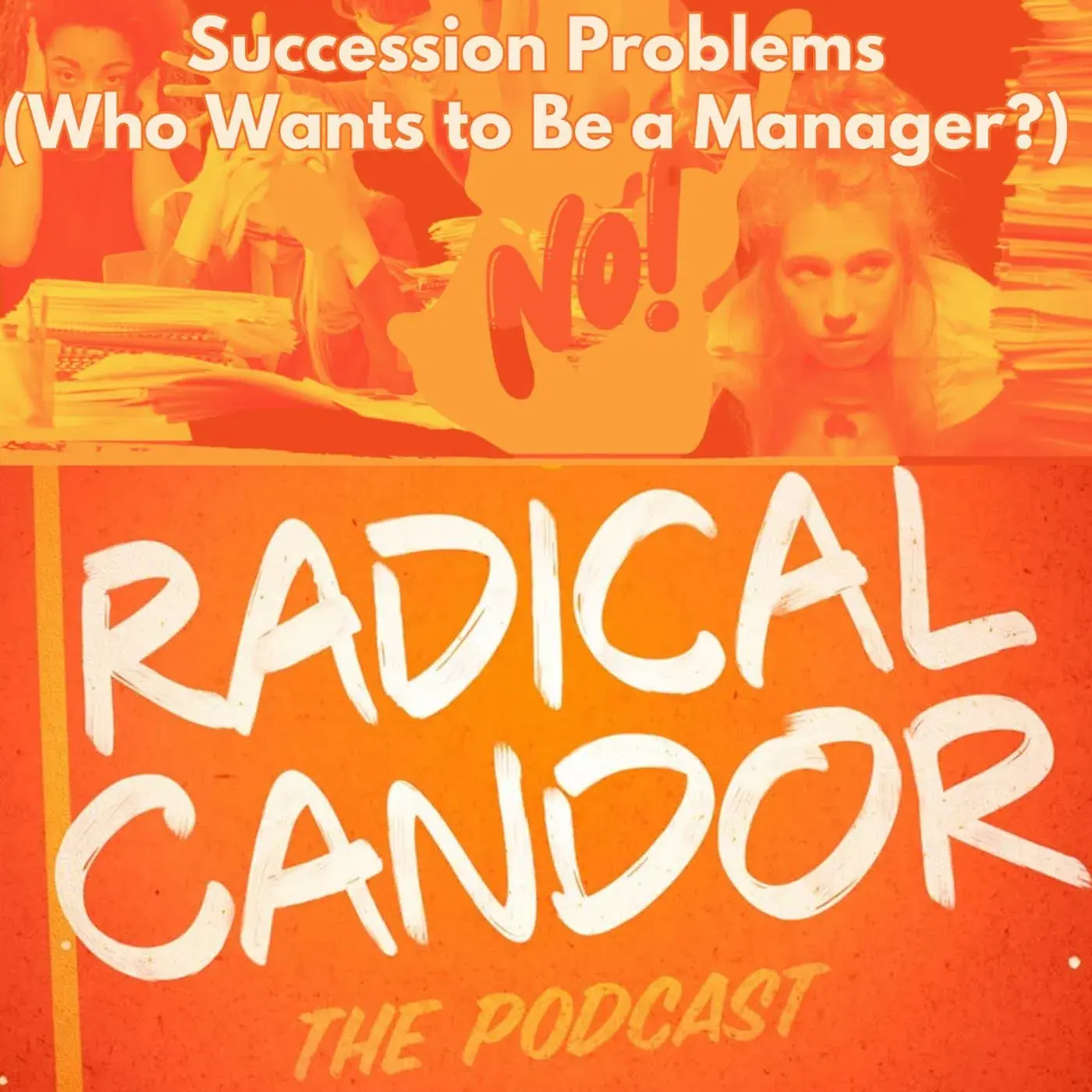Succession Problems (Who Wants to Be a Manager?) 6 | 14
Let's play, 'who wants to be a manager?!' We’ve talked about knowing whether or not being a manager is right for you and manager burnout, but what...

Kim, Jason, and Amy discuss a listener's question about how to confront and disrupt bias in management at work for women working in male-dominated fields. Jason and Kim role-play a scenario where a manager is clearly biased and explain how to disrupt bias in the moment. They also discuss documenting incidents and when it's time to go to HR.
Listen to the episode:
@radicalcandorofficial New episodes Wednesdays! #radicalcandor #breakthebias #biasdisrupter #podcastclips #roleplay ♬ original sound - Radical Candor
Dear Radical Candor,
I have a daughter in the mechanical engineering field, which is very male-dominated. She often experiences bias from her new managers. In her words, “The manager is actually a very nice guy.”This leads me to believe that he isn’t intentional in his actions but just isn’t aware of what he is doing. The conventional process is to go to HR and they will covertly look for situations that support this and then get rid of him. The realism is that the next person (let’s be real, regardless of race or gender) may be just as biased, just in a different orientation So, the cycle continues.
How does she manage up (or coach up) to help her manager understand what she observes, and help them to be a better manager? There is often a changeover in management. This change, especially at a low level is often someone who has no experience or training in managing. They aren't necessarily the smartest or most experienced in the department. They may not even be the most qualified person in the group.
All in all, what I am asking is: How does an individual at a power disadvantage make timely observations or dare I say corrections to the power advantaged without it being interpreted as being hostile or undermining? How does a person present these strategies to HR and those in authority to change the culture so that it is expected to coach each other, and hold each other accountable, up, down and laterally, and that there is a safe and respectful way to do this?
*Our robot makes some mistakes—listen to the episode for a 100% accurate account of the team's conversation.

00:00 Confronting Bias at Work
08:26 Recognizing Bias and Growth Mindset
13:33 Going to HR or Addressing Bias Directly
19:09 Managing Up and Coaching Up
23:39 Role Play: Addressing Bias with Manager
28:15 Reflecting on the Role Play
34:59 Double Standards and Prejudice
37:11 Being Tough in the Workplace
39:03 Dealing with Biased Perceptions
41:40 Coaching Managers
43:26 Building Relationships with Managers
46:02 Addressing Bias and Prejudice
48:57 Creating Cultures of Open Communication
52:41 Building Solidarity and Documenting Incidents
54:49 Summary and Closing Remarks
Have questions about Radical Candor? Let's talk >>
Follow Us
Instagram
TikTok
LinkedIn
YouTube
Facebook
X
————————————————————————————————————————————————————————————–
You’ll get an hour of hilarious content about a team whose feedback fails are costing them business; improv-inspired exercises to teach everyone the skills they need to work better together, and after-episode action plans you can put into practice immediately.
We’re offering Radical Candor podcast listeners 10% off the self-paced e-course. Follow this link and enter the promo code FEEDBACK at checkout.
We’re excited to announce that Radical Candor is now available as an hour-long videobook that you can stream at LIT Videobooks. Get yours to stream now >>

Episodes are written and produced by Brandi Neal with script editing by Amy Sandler. The show features Radical Candor co-founders Kim Scott and Jason Rosoff and is hosted by Amy Sandler. Nick Carissimi is our audio engineer.
The Radical Candor Podcast theme music was composed by Cliff Goldmacher. Order his book: The Reason For The Rhymes: Mastering the Seven Essential Skills of Innovation by Learning to Write Songs.
Download our free learning guides >>
Take the Radical Candor quiz >>
Sign up for our Radical Candor email newsletter >>
Shop the Radical Candor store >>
Get Radical Candor coaching and consulting for your team >>
Get Radical Candor coaching and consulting for your company >>
Meet the team >>

Let's play, 'who wants to be a manager?!' We’ve talked about knowing whether or not being a manager is right for you and manager burnout, but what...

On this episode of the Radical Candor podcast, Kim, Jason and Amy dig into the digital advice mailbag and answer questions from Radical Candor...

On this episode of the Radical Candor podcast, Kim, Jason and Amy address how to respond to some specific scenarios with Radically Candid feedback...